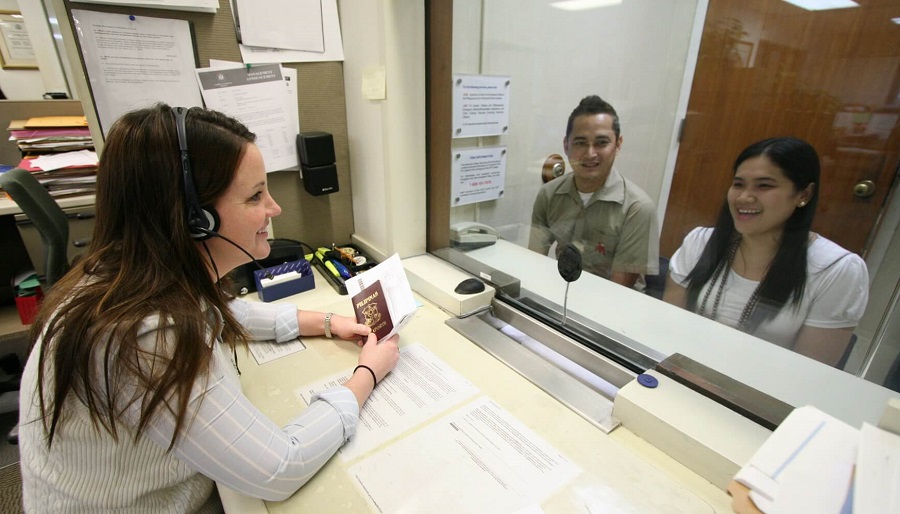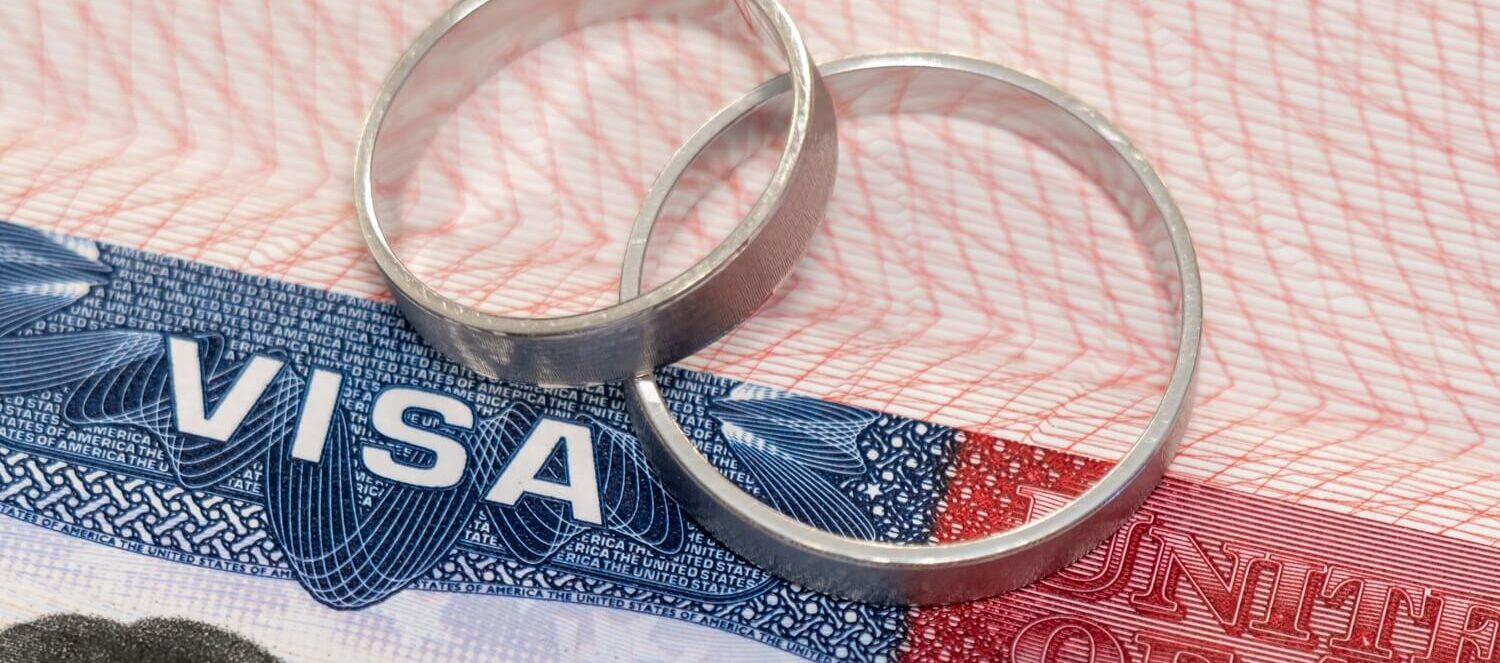
Navigating the consular interview process can be an overwhelming experience, especially when you're trying to bring your spouse to the United States. At CitizenPath, we understand the complexities and emotional weight that come with family-based immigration. This guide will provide you with everything you need to ensure a smooth and successful consular interview, ultimately reuniting you with your spouse or other family member.
Understanding the Consular Interview
The consular interview is a crucial step in the family-based immigration process, determining the eligibility of a foreign relative for a U.S. immigrant visa. Conducted at a U.S. embassy or consulate, the interview involves assessing the authenticity of the familial relationship, reviewing documents, and confirming the applicant is not inadmissible. It ensures that all requirements are met and that the applicant does not pose a security or public charge risk. The interview is typically the final step in the consular processing path to a green card. Preparation and honesty are key to a positive outcome.
There's a lot to look forward to. Most people have a successful interview that results in the grant of permanent residence in the United States.
Preparing for the Consular Interview
Preparation is key to success. Here are some steps to help you and your family member get ready:
Gather Required Documents
Depending on your country, the U.S. consulate's requirements may vary slightly. Always refer to your appointment letter for the exact list of required documents. Generally, you can expect to take the following items to your consular interview for an immigrant visa:
- Appointment Letter: This is your confirmation of the interview date and time.
- Passport: Ensure the passport is valid for at least six months beyond the intended date of entry into the United States.
- DS-260 Confirmation Page: This is the confirmation page of the immigrant visa application.
- Civil Documents: These include birth certificates, marriage certificates, police certificates, and any other required civil documents.
- Financial Support Documents: Submit Form I-864, Affidavit of Support, to prove that the petitioner can financially support the beneficiary.
Understand the Process
Each U.S. embassy or consulate may have slightly different procedures when conducting a consular interview and issuing immigrant visas. It's crucial to familiarize yourself with the specific procedures of the consulate where the interview will take place. Select your nearest U.S. embassy or consulate and review their website.
Medical Examination
The immigrant visa applicant must undergo a medical examination by an authorized physician. The embassy or consulate will provide a list of panel physicians who have been certified by the Department of State. The results of the medical exam will be sent directly to the consulate or given to the applicant in a sealed envelope to bring to the interview.
Practice Common Interview Questions
Prepare answers for common questions, such as those about the relationship history, wedding details, and future plans. Practicing these questions can help reduce anxiety and ensure clear, confident responses.
It's also best practice to take a copy of previously filed documents to the interview. When possible, have an original available for important civil documents such as birth certificates and marriage certificates. It's unlikely that you will need them, but it will greatly expedite the process if consular officials need a new copy. Additionally, take the time to review all your documents once more before attending the interview. It's likely been many months, and you may be asked about details. Being familiar with the contents can help you answer questions more confidently.
On the Day of the Interview
Here’s what you need to know to ensure everything goes smoothly on the day of the interview:
- Arrive Early
Arrive at the consulate early to allow time for security checks and to find the correct location. It’s better to be early than to risk missing your appointment. - Dress Appropriately
Dressing professionally can create a positive impression. Aim for business casual attire. - Be Honest and Consistent
Answer all questions honestly. Consistency is crucial, as discrepancies can lead to additional scrutiny or delays. - Stay Calm and Polite
It's natural to feel nervous, but staying calm and polite can make a big difference. The consular officer is there to help you, so approach the interview with a positive attitude.
After the Consular Interview
In most cases, you'll receive a decision by the end of the interview. After the consular interview, there are a few possible outcomes:
- Visa Approval
If the immigrant visa is approved, the consuluar officer will explain how and when you will receive your visa. This usually involves picking up the visa at the consulate or receiving it by mail. - Administrative Processing
In some cases, the consular officer may require additional information or documents before making a decision. This is known as administrative processing, and it can take several weeks or even months. - Visa Denial
If the consular officer denies the immigrant visa, they will provide a reason for the denial and information on any possible next steps.
Common Pitfalls to Avoid
To avoid common pitfalls, keep these tips in mind:
- Incomplete Documentation
Ensure all documents are complete and organized. Missing documents can cause delays or denials. - Miscommunication
For marriage-based green cards, clear communication between you and your spouse is essential. Ensure both of you are on the same page regarding your answers and the details of your relationship. - Inadequate Financial Support
Make sure you meet the financial support requirements. This typically involves submitting Form I-864, Affidavit of Support, to prove that the petitioner can financially support the immigrant spouse if necesary.
What to Expect When Entering the United States
Upon arriving at a U.S. port of entry, typically an international airport, the immigrant will present themselves to a Customs and Border Protection (CBP) officer. It's crucial to have all required documents readily available, including the immigrant visa packet, passport with the visa stamp, and any other relevant paperwork provided at the consular interview.
Admission Processing by CBP Officers
The CBP officer will first verify the immigrant's identity and review the documents. This process involves:
- Document Examination:
The officer will check the immigrant visa in the passport and the sealed visa packet. It's important not to open the sealed packet yourself; it must remain sealed until presented to the CBP officer. - Biometric Screening:
The CBP officer will take the immigrant's fingerprints and photograph as part of the standard biometric screening process. - Questioning:
The immigrant may be asked several questions to confirm the information provided during the visa application process. These questions typically relate to their intended residence in the U.S., their petitioner, and their plans.
After the initial screening, the CBP officer will endorse the immigrant visa with an entry stamp, converting it into a temporary I-551 (green card) valid for one year from the date of entry.
Receiving the Green Card
After entry, the immigrant can expect to receive their physical green card by mail. Be sure to confirm your U.S. mailing address with the CBP officer. If the address changes after entry but before the green card arrives, it’s essential to update the address with USCIS immediately. USCIS processes and mails the green card to the provided address. This process usually takes about 2-4 weeks but can sometimes take up to 120 days.
Important Considerations
- Social Security Number (SSN):
If the immigrant requested an SSN during the visa application process, they should receive their Social Security card by mail shortly after entry. If not, they will need to apply for an SSN separately. - Travel and Employment:
With the temporary I-551 stamp, the immigrant can travel and work in the U.S. while waiting for the physical green card. - Address Updates:
It’s critical to keep USCIS informed of any address changes to ensure all correspondence, including the green card, is received without issues. Contact USCIS if you did not receive your green card as expected.
The consular interview is a pivotal moment in the immigration process. With thorough preparation and a clear understanding of what to expect, you can approach this step with confidence. Remember, CitizenPath is here to support you every step of the way. By staying informed and prepared, you can successfully navigate the consular interview and bring your loved one closer to joining you in the United States.
About CitizenPath
At CitizenPath, we’re dedicated to helping immigrants and their families navigate the U.S. immigration process with confidence. Our online service provides simple, affordable, step-by-step guidance through USCIS immigration applications. Individuals, attorneys and non-profits use the service on desktop or mobile device to prepare immigration forms accurately, avoiding costly delays. CitizenPath allows users to try the service for free and provides a 100% money-back guarantee that USCIS will approve the application or petition. We provide support for the Immigrant Visa Petition Package (Form I-130), Affidavit of Support Package (Form I-864), and several other immigration services.
Sign up for our free newsletter below to receive regular tips and updates that empower you throughout all stages of the immigration process.
Want more immigration tips and how-to information for your family?
Sign up for CitizenPath’s FREE immigration newsletter and
SAVE 10%
on our immigration services







